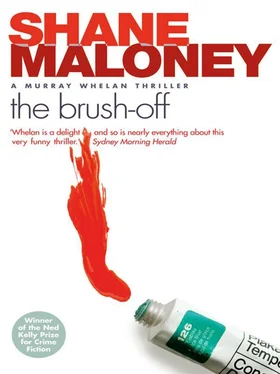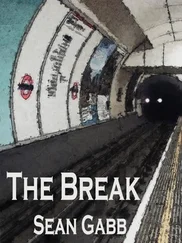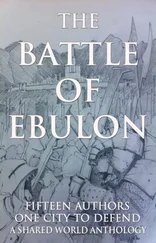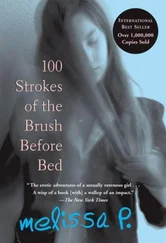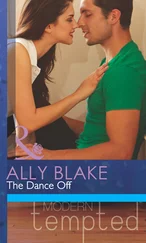Shane Maloney - The Brush-Off
Здесь есть возможность читать онлайн «Shane Maloney - The Brush-Off» весь текст электронной книги совершенно бесплатно (целиком полную версию без сокращений). В некоторых случаях можно слушать аудио, скачать через торрент в формате fb2 и присутствует краткое содержание. Жанр: Триллер, на английском языке. Описание произведения, (предисловие) а так же отзывы посетителей доступны на портале библиотеки ЛибКат.
- Название:The Brush-Off
- Автор:
- Жанр:
- Год:неизвестен
- ISBN:нет данных
- Рейтинг книги:3 / 5. Голосов: 1
-
Избранное:Добавить в избранное
- Отзывы:
-
Ваша оценка:
- 60
- 1
- 2
- 3
- 4
- 5
The Brush-Off: краткое содержание, описание и аннотация
Предлагаем к чтению аннотацию, описание, краткое содержание или предисловие (зависит от того, что написал сам автор книги «The Brush-Off»). Если вы не нашли необходимую информацию о книге — напишите в комментариях, мы постараемся отыскать её.
The Brush-Off — читать онлайн бесплатно полную книгу (весь текст) целиком
Ниже представлен текст книги, разбитый по страницам. Система сохранения места последней прочитанной страницы, позволяет с удобством читать онлайн бесплатно книгу «The Brush-Off», без необходимости каждый раз заново искать на чём Вы остановились. Поставьте закладку, и сможете в любой момент перейти на страницу, на которой закончили чтение.
Интервал:
Закладка:
This sight was not, in itself, remarkable. The gallery with its moat and its sculptures was a prominent civic landmark. A tourist attraction, a cultural resource. We’d both seen it a thousand times before. But neither of us had ever seen it like this.
An ambulance was drawn up at the gallery’s main entrance, a dark mouse-hole in the blank wall. Both of the vehicle’s rear doors were flung open. Its light was flashing. Giant shadows, thrown up by the spinning flare, played across the facade of the building like characters from a half-glimpsed puppet show. Like the figures in Plato’s cave. Two men were kneeling on the parapet of the moat. Their heads bobbed. Their arms jerked rhythmically. A little cluster of figures moved about the ambulance, engaged in some obscure task. The sudden silence, the lack of passing traffic, was absolute. The tableau was compelling in its mystery.
Drawn irresistibly, we crossed the road. It was a pointless detour, a distraction. Stupid.
The paramedics parted as we arrived, as if to display their handiwork, as if our mere presence entitled us to a view of the proceedings. Except they weren’t parting for us, but were clearing a way to wheel a stretcher towards the yawning doors of the ambulance.
On the stretcher was a body. Alive or dead, man or woman, it was impossible to tell. All I could see were legs, clad in wet black jeans. Then my view was blocked by a gallery security guard. His trousers, too, were soaked. Water trailed across the footpath. Someone had been pulled out of the moat.
There was a kind of bleak formality to the scene. Sombre work was being undertaken by those trained to its demands. The climax, whatever it was, had already been played out. We had no business here, gawping at its aftermath. I turned away, embarrassed, a little ashamed of my curiosity. Besides, I had more vital concerns. That loft in the city was only ten minutes away.
But Salina had slipped between two of the uniforms. ‘Hey, Marcus,’ she called, like it was all an elaborate joke being staged for our benefit. ‘What’s going on?’
Then I saw what she had seen. A pair of cowboy boots, tooled leather toes pointing at the sky, jutting from the end of the stretcher.
Things happened very quickly after that. A police car disgorged two uniforms, one male, one female. A security guard, some toy copper with pissant insignia, grabbed at Sal, caught one of her hula hoops. I pushed forward, but one of the cops got there first. She had Salina by the arm, holding her back. ‘You know this person?’
In the staccato explosions of light, I saw Salina’s face as it bent above the stretcher. Saw it change, frame by frame. Recognition. Shock. Panic. Her eyes were wide with dread. ‘He’s my…’ The words hooked in her throat.
‘His name?’ The policeman was in no mood to be stuffed about by a half-drunk dolly bird. One of the security guards had handed him a wallet, and he was reading a plastic card.
‘Marcus Taylor.’ Salina’s tone was defiant now, as she fought for control. The officer nodded, acknowledging her right to be there, conceding nothing else. The stretcher was almost all the way into the ambulance. Even without looking, I knew who he was, this Marcus Taylor.
‘He’s my boyfriend,’ said Salina. Then she corrected herself. ‘Fiance. He’s my fiance.’
The policewoman drew her back, making room for them to close the ambulance door.
Salina turned then and looked at me like it was all my fault. ‘Bastard,’ she swore.
I’d been given the brush-off before, but this was a bit rich. I could see that the woman was upset, but she could hardly blame me for what was happening.
Twelve hours earlier I’d never even heard of Salina Fleet, or this Marcus Taylor who was being fed feet-first into the ambulance. Twelve hours earlier, the idea of romping in the rhododendrons with a blonde cultural critic in a pom-pommed mu-mu was as remote as my chances of being appointed ambassador to the Holy See. Seeing a floater being pulled out of the moat of the National Gallery had not been pencilled into my diary.
Half a day earlier, I wasn’t even on this side of town. I was stuck in a stifling room behind a shopfront in Northcote, being given the hairy eyeball by Leonidas Mavramoustakides. It was the last Friday in January 1989, the stinking hot end of an overheated decade, and I was waiting for a phone call. I wished it would hurry up and come.
Mavramoustakides was once a major in Greek army intelligence. That was twenty years earlier, during the military regime. He still cultivated the style. Crisp white shirt, hairline moustache, dark tie, gimlet eyes. The dye he used to keep his hair jet black was beginning to run in the heat and little dribbles of it were trickling down beneath his collar. But I wasn’t going to tell him that. Not with the attitude he was taking.
He was sitting behind a tiny imitation baroque desk made of plywood. Most of it was taken up by a voluminous white marble ashtray, and by two pompously over-flowing correspondence trays, one weighted down by a small plaster bust of Aristotle. Mavramoustakides crushed the tip of his cigarette cruelly into the ashtray, put his elbows on his desk and smiled a mirthless smile. ‘If we don’t get your cooperation,’ he said. ‘We can make things very uncomfortable for you.’
It was difficult to conceive just how he proposed to do this. I was already about as uncomfortable as humanly possible. The air of the minuscule room was thick with stale cigarette smoke. My shirt was drenched with sweat and stuck to the back of a vinyl chair. My teeth were caked with grounds from the cup of muddy coffee in front of me. And Jimmy Papas, Mavramoustakides’ overweight sidekick, looked like he was about to lumber to his feet and smack me across the chops with his fat hand.
‘Remember,’ warned Mavramoustakides. ‘We are more than half a million Greeks in this city.’ The way he said it, you’d think he was claiming personal responsibility for the fact. ‘You can’t afford to upset that many people.’
Actually there were only 326,382 Greek-speaking residents of Melbourne and scant few of them paid any attention at all to Leonidas Mavramoustakides. The only reason we were having this conversation was because he and Jimmy Papas were getting to be a pain in the neck. They’d been ringing around and writing letters and two weeks earlier Papas had confronted my boss, Angelo Agnelli, at Kostas Manolas’ daughter’s wedding and threatened to make a scene. Angelo, naturally, had immediately agreed to an appointment. Then, naturally, he found he had an unavoidable engagement elsewhere and deputised me to solve the problem.
‘Piss off, Leo,’ I said, staring at the phone, willing it to ring. ‘You’re talking crap and you know it.’
We were in the editor’s office at Nea Hellas, a Greek-language tabloid with an ultra-conservative political line and a weekly readership of about ten thousand. Leonidas Mavramoustakides owned and edited the paper and Jimmy Papas was its business manager, a job that consisted largely of convincing delicatessen owners and fish-roe importers to buy advertising space they didn’t really need. This task was proving increasingly difficult, which explained why the two of them were getting so pushy.
‘We only ask what we entitled to,’ growled Papas, doing to his worry beads what he’d like to do to my testicles. ‘ Neos Kosmos, Il Globo, El Telegraph, all these papers get government advertising. How come we don’t get our share? If we don’t, our readers will not vote Labor at the next election. You tell your boss Agnelli that.’
A little respect would not have been out of order. For me, and for my boss. The Honourable Angelo Agnelli was a Minister of the Crown, the Minister for Ethnic Affairs. Ours was a Labor government, democratic in temper, so obsequiousness was unnecessary. Just a little less contempt, that was all I asked. The kind of scorn that Mavramoustakides displayed was the prerogative of colleagues and associates, not superannuated torturers.
Читать дальшеИнтервал:
Закладка:
Похожие книги на «The Brush-Off»
Представляем Вашему вниманию похожие книги на «The Brush-Off» списком для выбора. Мы отобрали схожую по названию и смыслу литературу в надежде предоставить читателям больше вариантов отыскать новые, интересные, ещё непрочитанные произведения.
Обсуждение, отзывы о книге «The Brush-Off» и просто собственные мнения читателей. Оставьте ваши комментарии, напишите, что Вы думаете о произведении, его смысле или главных героях. Укажите что конкретно понравилось, а что нет, и почему Вы так считаете.
